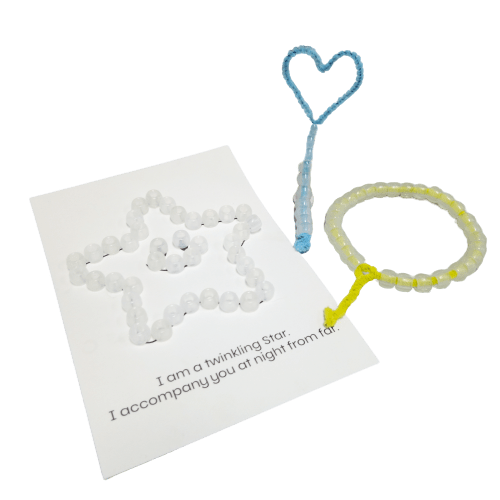Request for Little Scientists' quotation and talk to our education consultant >>>>
Science is omnipresent in our world and globalisation is accelerating technological, social, and economic integration. Innovation capacity and industry competitiveness, alongside the demands for socially responsible and environmentally sustainable futures, are constant policy themes.
Little Scientists Program Structure
Little Scientists is an exploration and play based three-year program that engages young learners in the wonderment of the world around them. Across three years, learners engage playfully with scientific knowledge, skills, values and behaviours through ninety experiential fun-filled lessons. Each year of the program is comprised of two, fifteen-lesson mini-programs, effectively breaking Little Scientists into a six-stage endeavour.
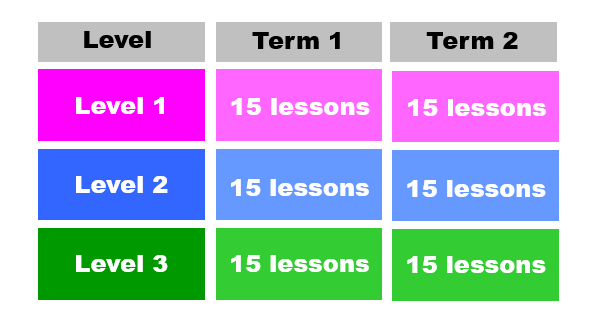
Building on the natural curiosity of young learners and their need to make sense of the world the program content examines six key domains of scientific knowledge; life or biological science, the nature of matter or chemical science, the physical sciences of energy and motion, earth science, space science, and the nature and practice of scientific inquiry. Exploring these domains requires a focus on process, manipulation, and critical and creative thinking and there are twenty-six skills in these areas that are both explicitly embedded and implicitly accessible within the program.
Scaffolding learning is supported through the mini-program lessons being grouped in topic based collections and the spiral sequencing with respect to learning opportunities in both thematic areas of scientific knowledge and the skill-based practices of scientific inquiry. Throughout the program, the practical nature and engaging design affords significant opportunity for questions and reflection and this dialogic focus serves to underpin exploration and learning with respect to the use and influence of science in our world. Furthermore, as part of the foundations for future scientific understanding combined with the development of critical skills and attitudes for learning, the Little Scientists program facilitates a rich context for young learners in their learning journey through individual and group pursuits, with motor control through instruments and models, in scientific literacy through language, and in early numeracy with connections to emerging mathematical understanding.
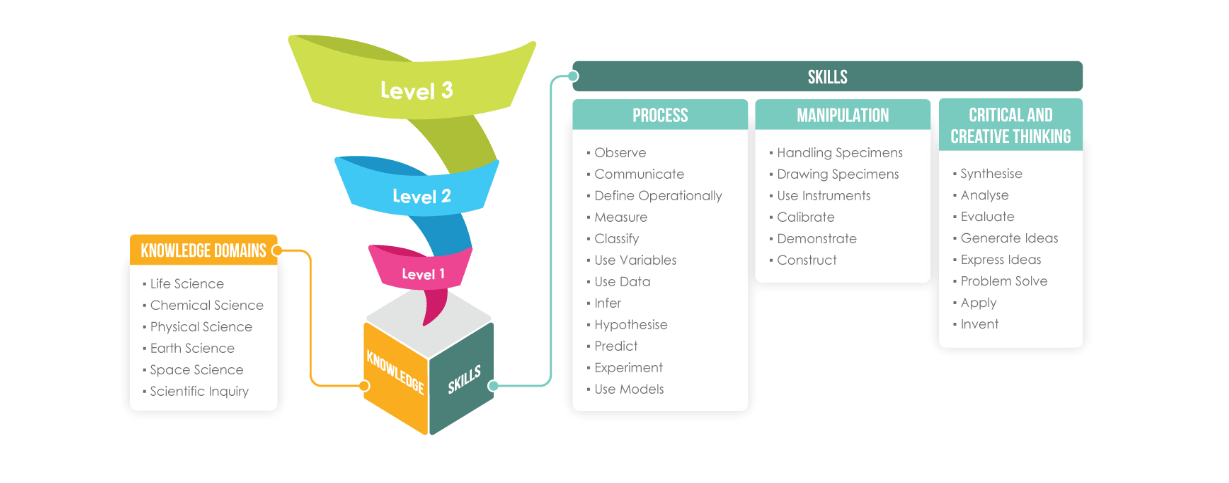
You Might Also Like Our Spark Kits
-
BUY 5 AT RM 95SALE
STEM Kit Experiment For Kids At Home – Kit #24 : The Stunning UV Beads
RM25.00 -
BUY 5 AT RM 95SALE
STEM Kit Experiment For Kids At Home – Kit #32 : The Sky Rider
RM25.00 -
BUY 5 AT RM 95SALE
STEM Kit Experiment For Kids At Home – Kit #19 : The Insect Magnifier
RM25.00 -
BUY 5 AT RM 95SALE
STEM Kit Experiment For Kids At Home – Kit #31 : Mini Anemometer
RM25.00
Little Scientists Lesson Structure
We have structured lessons in the program in a consistent format that can accommodate teaching and learning across a range of pedagogical strategies and methods. Whilst the scope and sequence of the program builds in depth and complexity and the six, fifteen-lesson mini-programs underscore scaffolding and spiralling of learning opportunities we have also ensured that every lesson can stand-alone.
There are three distinct stages to a Little Scientists lesson that correspond with getting clarity with respect to a lesson and its necessary preparations, interacting with learners in the delivery of a lesson’s sequence of activities, and closing and reflecting on the learning and teaching for kindergarten teacher. We call these stages Establishing, Engaging, and Examining.
Establishing
Establishing context, clarifying learning intentions, and highlighting key language
Engaging
Engaging activities purposefully scaffolding learning and supporting learner agency
Examining
Examining learning and impact through guided reflection for both learners teachers
What’s Included
Lesson Plans
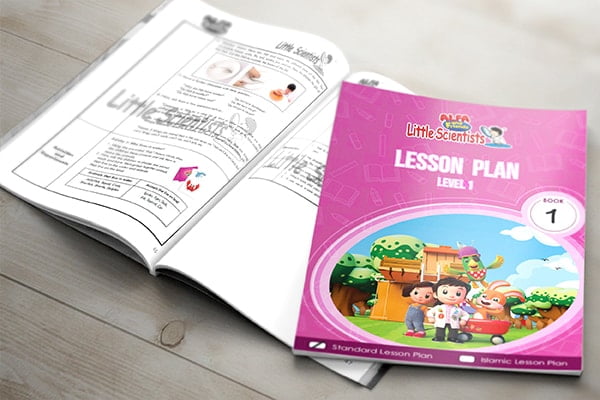
Teachers will have a comprehensive yet easy to follow lesson plans. It helps teachers to understand what to expect, what to prepare, and how to approach a lesson.
Teaching Aids
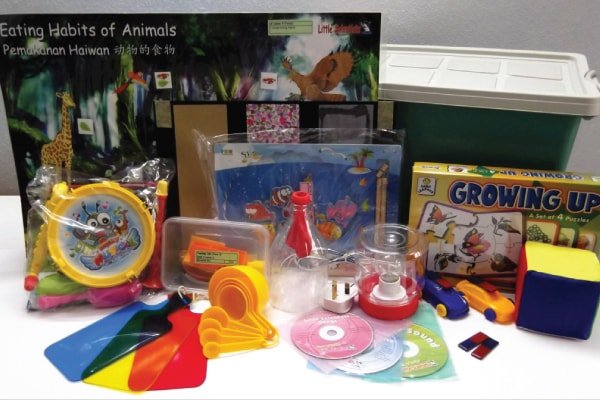
Teachers will have a set of experiment kit for them to teach effectively. Hassle free ready to use experiment materials are sorted and packed in a systematic way. With the provided resources, teachers can begin the science lessons instantly.
Science Corner
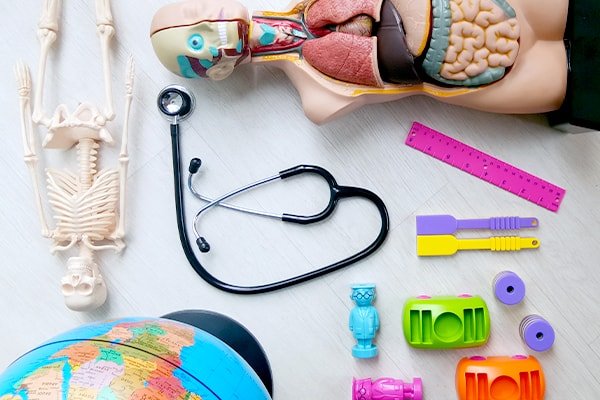
Teachers may use selected apparatus or resources here to enrich the learning experience for the children. For example, when teaching “My Lungs” lesson, the teacher may bring the Human Torso into the class.
Professional Development

We support and develop teachers classroom practices through our continuous professional development program twice a year. Find out more about Science professional development program.
Student Kits
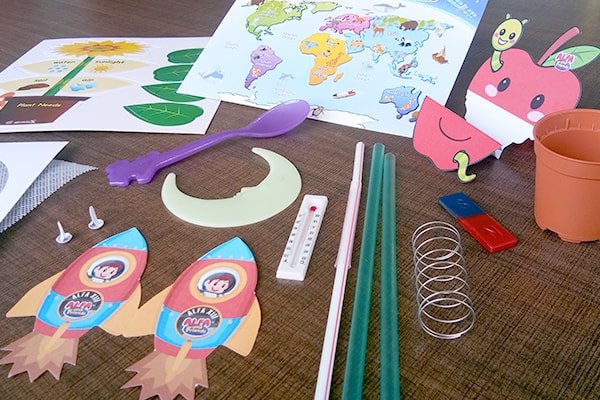
Each child will have his/her own hands-on activity kit to work on during the lesson. After the lesson, they will bring it home to share with their parents what they have learned.
Activity Books
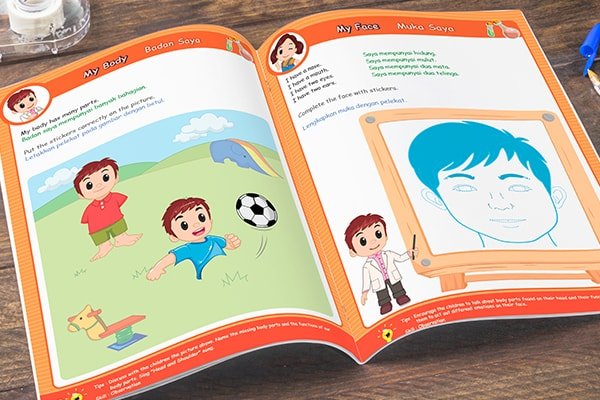
Children will connect what they have learned in the lesson and record their understanding on the illustrated pages.


